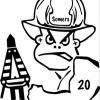Sign in to follow this
Followers
0

New Test Can Tell EMS When CPR Is Futile
Started by
JM15,
18 posts in this topic

This topic is now closed to further replies.
Sign in to follow this
Followers
0
-
Recently Browsing 0 members
No registered users viewing this page.
